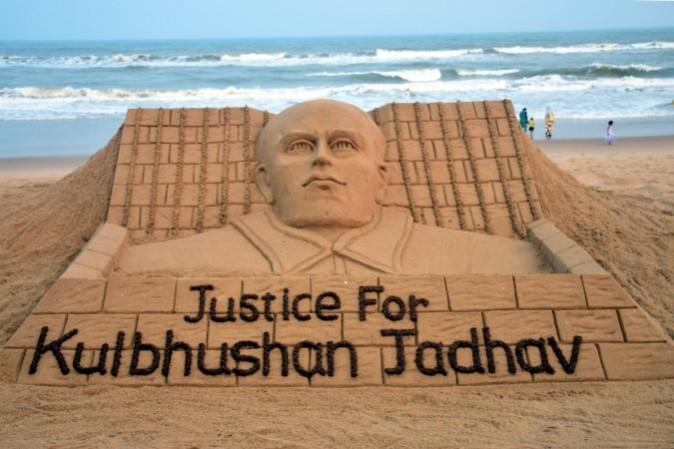
Amid the huge face-off with Islamabad over the dastardly Pulwama terror attack, India is presenting its case at the International Court of Justice (ICJ), seeking cancellation of Pakistan's death sentence on Kulbhushan Jadhav - an Indian national.
On February 18, India accused Pakistan of misusing the Kulbhushan Jadhav case, saying the country has no substantive defence and is indulging in malicious acts. While contending before the ICJ, India claimed the custody of Kulbhushan Jadhav in Pakistan jail was unlawful and demanded his release saying Islamabad has seriously violated various provisions of the 1963 Vienna Convention and other protocols.
48-year-old Kulbhushan Jadhav was sentenced to death by a Pakistani military court on charges of espionage and terrorism in April 2017. India moved the ICJ in May that year, and the world court restrained Pakistan from executing Jadhav till the adjudication of the case.
Harish Salve at ICJ
Representing India before the International Court, senior advocate Harish Salve said the case rests mainly on two points - the breach of Vienna Convention by Pakistan, and "with regard to the relief to be granted".
"Among other things considering the trauma he was been subjected to for three years, it is in the interest of justice and making human rights a reality, the court should direct his release," he said adding Pakistan was using him as a propaganda tool.
Salve was presenting his arguments after India and Pakistan filed memorials and counter-memorials in the case in which the ICJ had in May 2017 stayed Jadhav's execution.
"I consider myself honoured to present India's case here to save an innocent Indian. The basis on which India is pursuing the case are: First issue relates to construction of the Vienna Convention, consular access was not granted," Salve said accusing Pakistan of raising issues that have no relevance to the case.
He said the trial by Pakistan failed in following even the minimum standards of natural and human rights. Pakistan asserts Jadhav was arrested, but India maintains he was abducted. Jadhav's continued custody without consular access should be declared unlawful.
"There is no manner of doubt that Pakistan was using this as a propaganda tool. Pakistan was bound to grant consular access without delay. On March 30, 2016, India reminded Pakistan of its request of consular access (for Jadhav) and received no reply. 13 reminders were sent by India on various dates.
"Pakistan did not disclose the date of detention as well. No document of Jadhav's trial was given to India. Despite repeated attempts for immediate consular access Pakistan has not done that so far," he said.
Salve said finding itself bereft of any substantive defence, Pakistan has raised a host of issues that do not have relevance to the issue. Pakistan runs unmerited defences. It mis-states the law, misreads commentaries and relies on material that is not recognised having any precedential value."
Having failed in its propaganda in a feeble attempt to counter global criticism of its role in cross-border terrorism, Pakistan has sought to raise issues like India's refusal to allow freewheeling inquiry into high functionaries without even disclosing the fundamental elements of the alleged offences that have been investigated, he said.
Referring to Jadav's passports, allegedly seized from him, the Indian counsel said it was India's case and did not call for resolution and decision by this court.
The relevant issues are first the Vienna Convention, second in the application of its language to the conduct of Pakistan "which leads us to the step of deciding the appropriate relief to be granted", he said.

















